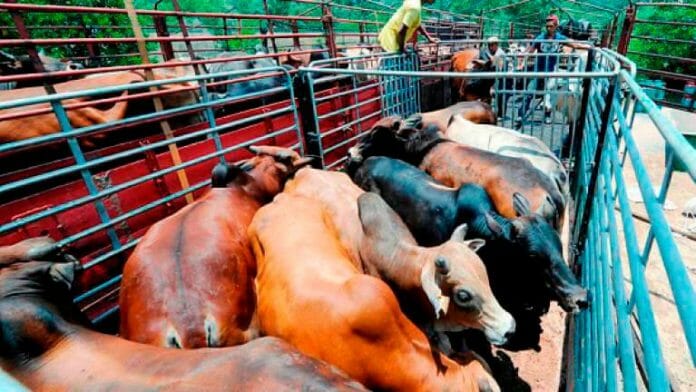Thailand is ready to re-supply cattle by complying with all import rules and procedures set by the Malaysian Veterinary Services Department (JPV), especially for sacrificial rituals ahead of Hari Raya Aidiladha in July.
Director of the Livestock International Cooperation Division, Department of Livestock Development Thailand (DLD) Dr. Wacharapon Chotiyaputta told Bernama that his country had sufficient facilities, capacity, and supplies for exports.
Industry players, including exporters and cattle breeders in Thailand have assured that they will comply with Malaysian import rules and procedures to ensure disease-free livestock.
On June 7 2021, JPV suspended imports of cattle and buffaloes from Thailand with immediate effect after assessing the risk of Lumpy Skin Disease (LSD) transmission reported in more than 41 provinces in Thailand.
The ruling was taken to curb the risk of LSD disease transmission from Thailand, in the interest of the Malaysian ruminant farming industry.
After several meetings, discussions, and improvements to several import rules and procedures, the JPV lifted the ban on the import of cattle and buffaloes from Thailand with immediate effect on March 15.
Meanwhile, Sri Wichai (Phatthalung) Beef Producer Cooperative Ltd President Supak Thammaphet said his party now had a sufficient supply of cattle and buffaloes to be exported to Malaysia.
Apart from that, he said all cattle to be exported to Malaysia would be fully vaccinated and quarantined for 28 days at DLD-approved quarantine centers.
In 2021, Malaysia will import 12,405 cows from Thailand in conjunction with the Aidiladha celebration compared to 12,553 in 2020.
Meanwhile, Deputy Director-General of the Malaysian Quarantine and Inspection Services Department (Maqis) Dr Azhari Sharidan Abu Bakar urged all industry players, including importers, middlemen and breeders to cooperate by ensuring that livestock imports from Thailand complied with the prescribed procedures.
“This measure is important to control diseases such as LSD, Food and Mouth Disease (FMD), and Tuberculosis.
“We need to ensure public health is guaranteed and local livestock are not exposed to disease,” he told Bernama.
He said among the imported rules and procedures that had been improved included a quarantine period of 35 days at quarantine facilities for livestock and dairy cattle while 28 days of quarantine for slaughter cattle.
Meanwhile, Agriculture Counselor of the Bangkok Agricultural Advisory Office Hairuddin Maslan hoped that all parties in Thailand would adhere to the improved protocol in order to meet the demand for cattle for this year’s Aidiladha celebrations.









